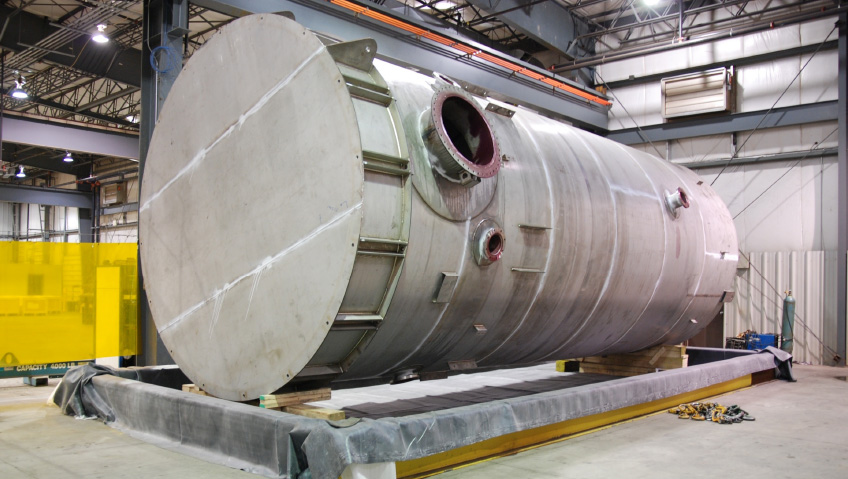Strategically positioned along Interstate 77’s north-south corridor, Chester County offers unparalleled access to major markets. Within a day’s drive of 42 percent of the U.S. population, just 30 minutes from Charlotte Douglas International Airport, and served by the short-line L&C Railroad—which connects to both CSX and Norfolk Southern—Chester County is an ideal location for manufacturing and other industries.
We spoke with Robert Long, Chester County’s Director of Economic Development, at his office in Richburg, SC, located 13 miles east of the county seat of Chester City. Long shared his proactive strategies for attracting business investment to the county, which is situated in a highly competitive and business-friendly state.
One key strategy is active participation in the SC Interstate 77 Alliance, a regional marketing organization that includes five counties stretching from Columbia to the state line. The Alliance builds relationships with European and Canadian investors, leveraging Chester County’s proximity to Charlotte’s international airport, which offers direct flights to cities like Munich, Frankfurt, Toronto, and Montreal.
“We’re a small county and we can’t be everything to everyone, but having those international flights has put us in play for Canadian and European investments,” Long tells us.
A thriving manufacturing community
“Our goal is direct investment and business attraction,” he shares. “We are a thriving manufacturing community which accounts for approximately 50 percent of the jobs in the private sector, and that is something that distinguishes us. There are lots of communities here close to the urban core like Charlotte, Columbia, and Greenville that aren’t quite as into manufacturing as they were decades ago, but we still are.”
Chester County was once part of a belt of textile factories lining the I-77. Although most of them have gone, a few have remained, while the manufacturing industry has diversified to include lumber and wood products, metals, chemicals, plastics and rubber, and an emerging food and beverage sector, which all benefit from the short-line railroad, originally built to accommodate the textile manufacturers.
Last year, Long says, the State of South Carolina made three billion-dollar announcements, with all three on the I-77 and one of them in Chester, “so we are very proud of that.” In March 2023, Albemarle Corporation, which maintains offices in Charlotte, North Carolina, announced plans to build a $1.3 billion state-of-the-art “Mega-Flex” lithium hydroxide processing facility to produce EV batteries in Chester County for the growing EV manufacturing industry elsewhere in the state. This project will result in 300 new jobs, with an average salary over $90,000.
This year, Princeton Energy, a company that came out of Princeton University in New Jersey, announced an $11 million, 40-job project to recycle lithium batteries in a more efficient process. “It’s a pilot project for small-scale production, but we are hoping that it will go to full-scale production in the next few years,” says Long.
Then there’s IKO Industries, a leader in the roofing, waterproofing, and insulation industry throughout North America and Europe, which announced a $360 million investment in February 2023 to open two plants in Chester County. One will be a fiberglass manufacturing facility, and the second will use the output to manufacture fiberglass mats, a vital component in asphalt shingle production. The project will create 200 local jobs.
International investment is not new to Chester County. In 2021, the E & J Gallo Winery, a global wine and spirits company, announced a $423 million investment to build a state-of-the art production and distribution facility that will create 496 jobs over the next eight years, allowing it to meet customer demand on the east coast. Its proximity to the Port of Charleston will also serve as a hub for Gallo’s import and export business.
A business-friendly environment
“South Carolina as a whole is listed among the top five business-friendly states in the country,” according to Long. “We’re referred to as the ‘handshake state’ because we are small and nimble enough to be able to do what we say we are going to do.”
Chester County has moved from being a Tier 4 county, meaning underdeveloped, to Tier 3 status, “and because of the success we’ve had in the last few years, the statutory incentives we are able to offer projects is substantial,” Long explains. “One of the big things South Carolina offers are discretionary incentives, so now Chester County can offer fees in lieu of property taxes. On top of that, we can layer grants that for the first five or 10 years can further lower the tax bill, which levels the playing field and makes us competitive with North Carolina or Georgia.”
Chester County has reliable infrastructure, with a local natural gas authority that allows businesses to negotiate rates, excellent water and sewer systems, railways and highways, and hydroelectric dams on the Catawba River, managed by Duke Energy. As a result, power outages are rare, small, “and more of a nuisance than a disruption,” and because the county is two and a half hours inland from the Port of Charleston and Myrtle Beach, a popular tourist destination, “we don’t usually get hurricanes here.”
Manufacturers looking to open or expand in Chester County can rely on a well-trained local workforce. The SC Technical College System, comprising 16 colleges and two statewide programs, readySC™ and Apprenticeship Carolina™, plays a key role in educating and training the workforce for in-demand, high-skilled jobs. The system works, in partnership with the SC Department of Commerce and Economic Development agencies, to attract new companies to the state by providing skilled workforce solutions to assist with initial start-up and early production goals, and comprehensive training solutions to meet companies’ long-term growth strategies to ensure they stay.
Quality of life
Anyone relocating to the area will enjoy a pleasant climate year-round, with real estate prices considerably lower than those found in Charlotte or its suburbs. “The price of a house in Rock Hill, a Charlotte suburb, jumped by $150,000 last year to $400,000,” says Long, “but you can come 20 minutes further south and buy that same house for $300,000.”
Until recently, housing stock had not been keeping up with the population growth, “but we have had 400 new houses built recently and six new developments to accommodate 3,300 homes have been approved,” says Long. These will include a mix of detached homes, townhomes, and multifamily residences.
While excited about the growth in housing stock, Long says the agency is concerned about maintaining local green spaces, so a minimum of 20 percent green space is required in new developments, with some developers offering to do 25 percent for further considerations. “We have also increased our buffer for waterways, which historically has been only 50 feet; we have doubled that to 100 feet,” he says.
“We have a lot of water, both flat water and white water, on the Catawba River for rafts, kayaks, or canoes. The outdoor lifestyle is where we shine,” he says, referring to opportunities for hiking in the National Forest, golf, agritourism businesses, and farmers markets.
The county seat of Chester, often called the “Pretty Little City” for its historic downtown, has a population of 5,500. Like many small communities, it experienced some business losses when companies relocated closer to the highway bypass. However, there is now growing excitement and momentum around revitalizing the downtown area. Chester County Economic Development helped a developer purchase two large buildings for renovation, “and I am excited about that because it will contain street-level commercial space with a residential component,” says Long. “In my mind, for a downtown to be successful, you need people living in it.”
One of the buildings is now complete and features Heybo Outdoors, a leading outdoor apparel company; a women’s clothing boutique; and a storefront operation for Hazelwood Farms Dairy. Now, Long has partnered with Retail Strategies, a company based in Birmingham, Alabama, to conduct a “retail gap” analysis to find out what people are looking for when they shop and what they go to urban centers to purchase.
“Most of my work has been focused on the bread-and-butter part of economic development, on manufacturing and logistics, but we need retail too,” which is the reason Long has gone for the first time to the ICSC show in Atlanta, Georgia.
“My prediction is that we are set to become one of the hotspots in the metro Charlotte region on the radar of national retail,” he says. “And hopefully we can move on this momentum and excitement. We are at the right place and the right time, and we are set to be the fastest growing county in the state.”






